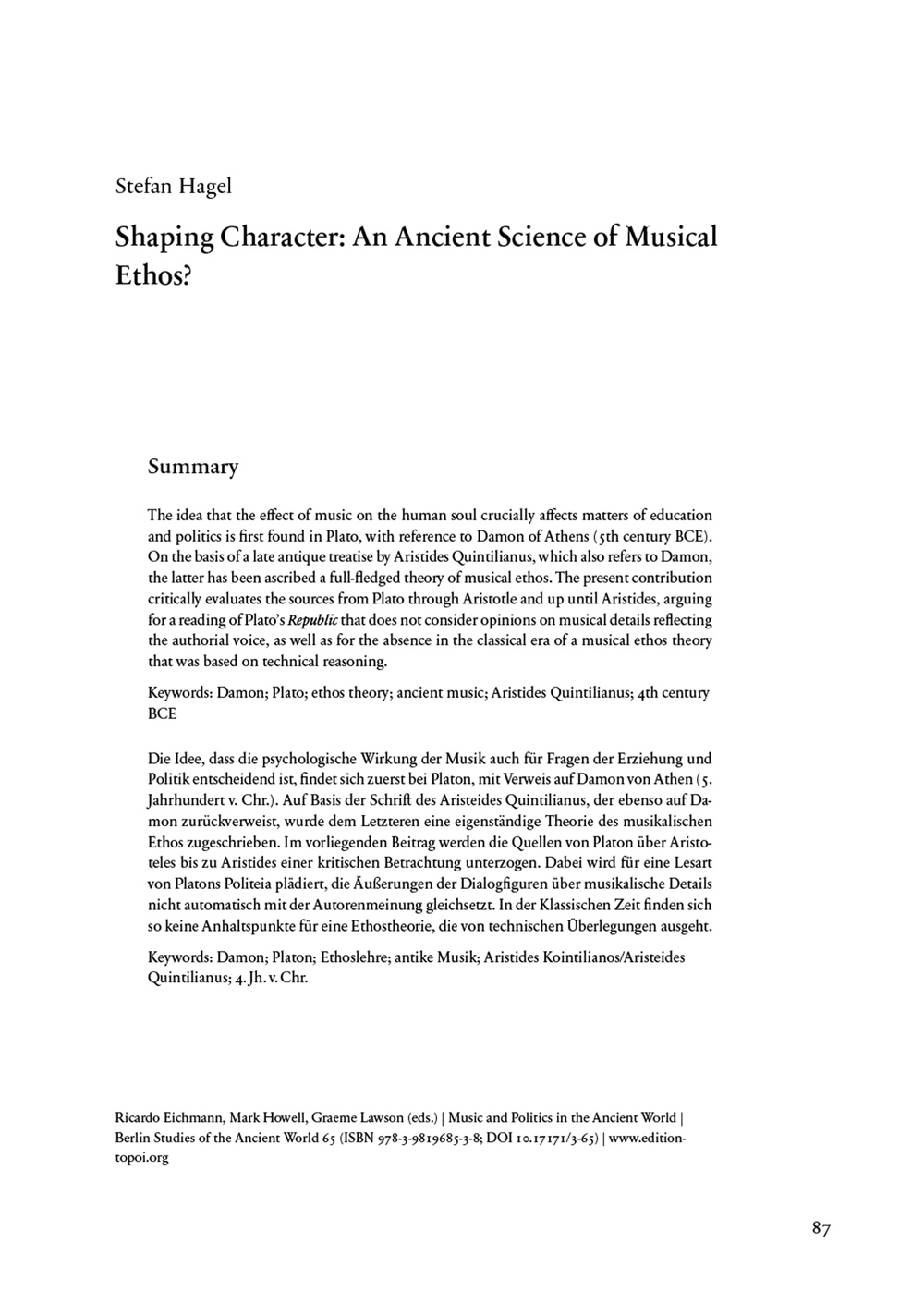Shaping Character: An Ancient Science of Musical Ethos?
The idea that the effect of music on the human soul crucially affects matters of education and politics is first found in Plato, with reference to Damon of Athens (5th century BCE). On the basis of a late antique treatise by Aristides Quintilianus, which also refers to Damon, the latter has been ascribed a full-fledged theory of musical ethos. The present contribution critically evaluates the sources from Plato through Aristotle and up until Aristides, arguing for a reading of Plato’s Republic that does not consider opinions on musical details reflecting the authorial voice, as well as for the absence in the classical era of a musical ethos theory that was based on technical reasoning.
Die Idee, dass die psychologische Wirkung der Musik auch für Fragen der Erziehung und Politik entscheidend ist, findet sich zuerst bei Platon, mit Verweis auf Damon von Athen (5. Jahrhundert v. Chr.). Auf Basis der Schrift des Aristeides Quintilianus, der ebenso auf Damon zurückverweist, wurde dem Letzteren eine eigenständige Theorie des musikalischen Ethos zugeschrieben. Im vorliegenden Beitrag werden die Quellen von Platon über Aristoteles bis zu Aristides einer kritischen Betrachtung unterzogen. Dabei wird für eine Lesart von Platons Politeia plädiert, die Äußerungen der Dialogfiguren über musikalische Details nicht automatisch mit der Autorenmeinung gleichsetzt. In der Klassischen Zeit finden sich so keine Anhaltspunkte für eine Ethostheorie, die von technischen Überlegungen ausgeht.

